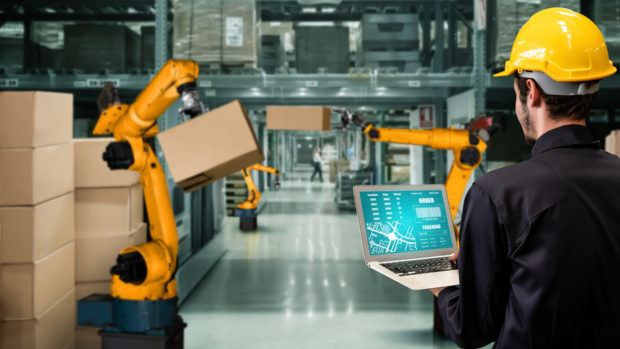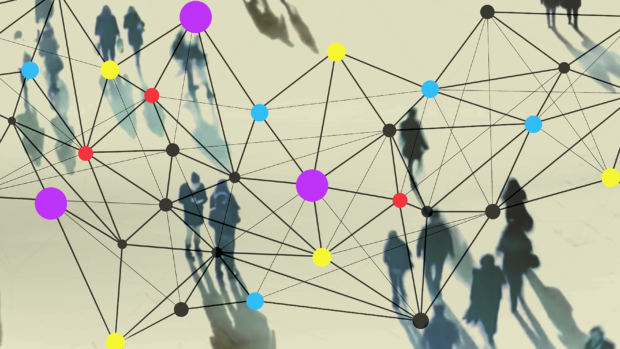
ChatGPT, the new AI-powered chatbot, is set to revolutionise the way we work. The chatbot uses natural language processing (NLP) to generate high-quality, human-like responses upon user request, making it one of the most innovative and influential AI systems to date, with use cases of the technology far exceeding its initial potential. The most pervasive application has been writing and creating content, but its uses extend far beyond the realms of the written word.
Retail is not exempt from the influence of AI and is adapting to the newly discovered use cases of this evolving technology. Businesses, for example, are using ChatGPT to analyse customer data and provide seamless shopping experiences for customers. While this is an exciting development within the tech and retail landscapes, many workers can’t help but worry about the impact of AI on job security. If technology can perform certain tasks just as well if not better than humans, will there still be a need for retail jobs?
The short answer is yes. ChatGPT will not only support retail workers as they carry out their existing roles, but it also has the potential to create new jobs. As AI continues to evolve and integrate itself into the retail industry, there will likely be a growing demand for people with the necessary skillset to augment and maintain these systems. There may also be job opportunities for those who can interpret and use the data produced by AI models to make informed business decisions. With these predictions in mind, we can anticipate plenty of job vacancies in areas such as software development, data analysis and customer service.
ChatGPT’s language processing capabilities are far more advanced than anything previously accessible to the public, reminding us that cutting-edge AI technology has already arrived, and it is here to stay. In light of this invariable truth, retail brands should look to embrace the technology, rather than dismiss it.
International supermarket chain Carrefour is already making the most of ChatGPT’s avant-garde features. The retailer has developed a ChatGPT-generated video that advises customers on how to buy healthier and less expensive goods. By using AI in this manner, Carrefour hopes to better serve clients and reduce the cost of creating content manually. Businesses should follow suit if they want to keep up with the latest trends and stay competitive.
It’s time that we examine how ChatGPT will affect the retail scene and shopping habits, as well as the steps brands must take in order to use artificial intelligence to their advantage.
Streamlined Internal Operations
AI technology has the power to modernise and improve the in-house operations of brands and retailers. For instance, businesses can use AI algorithms and predictive analytics to forecast demands and manage inventory levels, thereby reducing the possibility of being over or understocked. These tools can also be implemented to enhance supply chain management. Brands are able to use the AI systems to optimise their delivery routes and predict shipping times, helping to reduce costs and increase efficiency.
Personalised Shopping & Targeted Marketing
There is no doubt that AI is transforming the way we shop. Over 70 per cent of retailers have taken action and adopted AI-powered models into their business agenda. With these new technical advancements in place, eCommerce websites can successfully monitor past customer purchases and browsing histories. This helps to generate highly personalised ads, which in turn strengthens the overall customer experience, increases client loyalty and most importantly, boosts sales.
Chatbot Usage
One of the most prominent examples of effective AI within retail is the use of chatbots. Among all the communication channels used by brands, chatbots have shown the fastest growth rate. Recent survey findings reveal that 67 per cent of global customers interacted with a chatbot over the last twelve months. 87.2 per cent of these users described their chatbot encounter as positive, indicating that conversational AI is rapidly becoming an integral part of online shopping. Like ChatGPT, retail focused chatbots process user input to deliver instant, 24-hour customer support, assist with website queries and help customers to find exactly what they’re searching for online.
Conclusion
Overall, retailers are benefiting considerably from AI implementation. With the ability to review data, streamline processes, and provide optimal customer experiences, AI technology can help retail companies to build consumer trust and establish a strong reputation. As AI and ChatGPT reshape the retail sector, the evolution of AI and its application in the industry will provide opportunities to innovate and thrive.
The majority of job losses happen when companies need to thin out their burn rate and therefore cut salaries. AI not only automates manual elements of people’s jobs, but more importantly, creates new jobs, accelerating the growth – and profitability – of the retail sector. Retailers that fail to automate and adopt AI technologies face being left behind and disbanding, which therefore puts jobs at risk.








Share